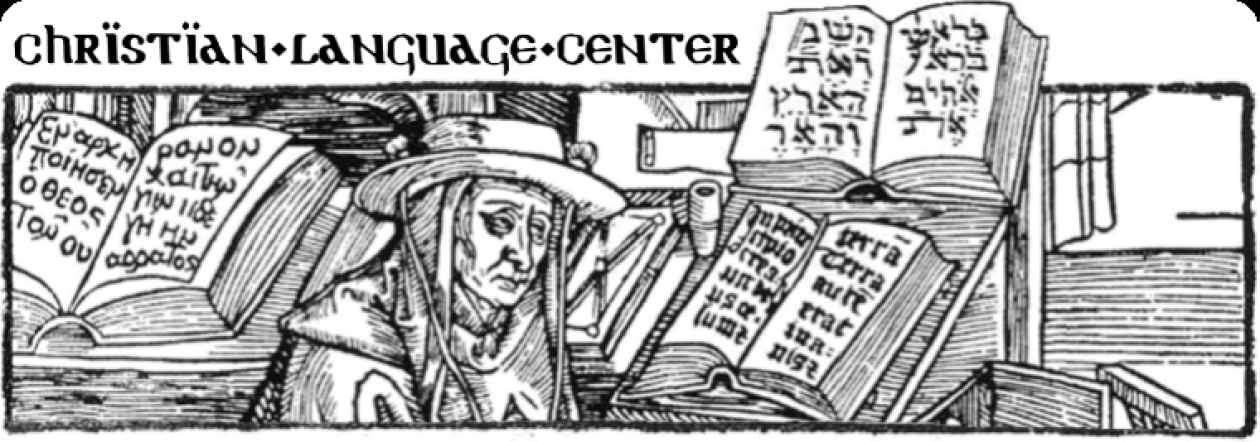WHY CHRISTIANS SHOULD STUDY GREEK
I never touched a trained mind yet which had not been disciplined by grammar and mathematics—grammar both Greek and Latin; nor have I ever discovered mental elegance except in those familiar with Greek and Latin classics. -William Milligan Sloan
I am aware that most say that knowledge of Greek is unnecessary, because, unlearned themselves, they wish others to match their ignorance, so that if they cannot be judged superior then at least not inferior. But for my part, I shall defend until my dying day the error (if error it be) that it is not only beneficial but even essential to our literary education…WE have the precedents of the most learned ancients, none of whom lacked Greek; and the authority of Quintilian, who says that our literature has its source in Greek. -Battista Guarino
As a homeschooling parent, your time is precious. You have limited time in your school day and you want to use it efficiently so that your child has every spiritual and academic advantage in life. How does Greek fit into that picture? How is it relevant to your child? Here are seven points supporting Greek in the Christian home.
- Greek is the language of the New Testament. Many theological points rest upon a single Greek word or Greek grammatical construction. Solid New Testament theology depends upon some knowledge of Greek.
- Learning Greek is easy and fun for children! Parents do not need to know the language because there are resources (reviewed on this site) for independent study. Just one hour of the school day (what we at the Christian Language Center call “Language Hour”) dedicated to the sacred languages can develop proficiency in Hebrew, Greek, and Latin.
- Children who study Greek score much better on the Reading and Writing portions of the SAT than their peers who study other languages—except Latin and Hebrew (Hebrew 549/548, Greek 546/538, Latin 560/546, Spanish 500/492, French 524/516.) 2010 SAT data from http://professionals.collegeboard.com/profdownload/2010-total-group-profile-report-cbs.pdf
- The great heroes of the faith were also great students of the three languages (Latin, Greek, and Hebrew.) It is no accident that St. Jerome, Desiderius Erasmus, Martin Luther, John Calvin, John Wycliffe, and C.S. Lewis were all versed in Latin, Greek, and Hebrew. It is also no accident that the brilliant founders of the American Republic were also fluent in Latin and studied Greek and Hebrew at the university level (at the time of America’s founding, universities did not offer electives as they do today: the curriculum was prescribed and universally it included Greek and Hebrew at its core. Fluency in Latin was a prerequisite for admission to any college.) If you dedicated your entire school day only to the study Latin, Greek, and Hebrew (leaving out entirely the study of history, math, science, and English as independent subjects), you would be teaching your child in the same style and tradition as the greatest minds in Christian history. I am not advocating abandoning other subjects, but rather making the study of the three languages central.
- Above the cross Pontius Pilate used the three sacred languages, Hebrew, Greek, and Latin, to testify (inadvertently) to the world the identity of Christ: And an inscription also was written over Him in letters of Greek, Latin, and Hebrew: THIS IS THE KING OF THE JEWS (Luke 23:38).
- Many English theological terms like soteriology, eschatology, and hermeneutics are simply borrowed Greek terms and are much less complex if understood through their Greek roots (e.g. soter=savior).
- Greek also trains the Christian mind in other ways, like English derivatives (10% of our English vocabulary comes from Greek) and scientific nomenclature.
